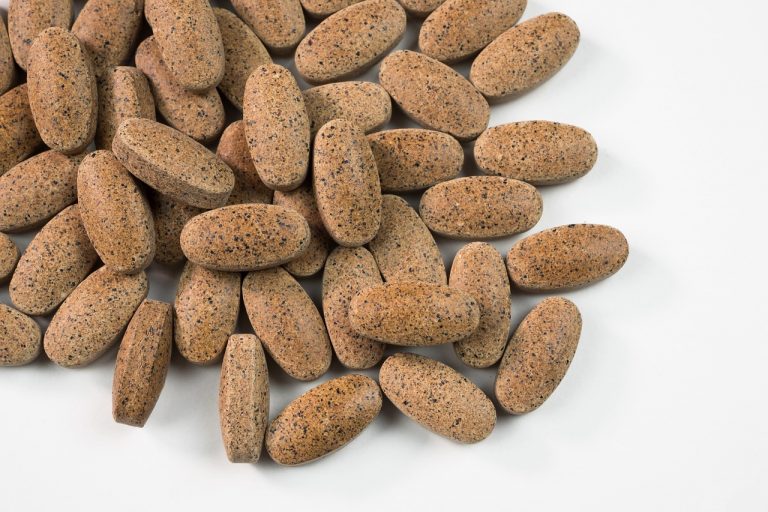10 Tips To Live A Healthy Life Mentally And Physically
- Get regular exercise: Regular physical activity is essential for maintaining a healthy body and mind. Not only does it help to improve cardiovascular health, but it also helps to boost mood and reduce stress. Aim for at least 30 minutes of moderate-intensity exercise, such as brisk walking or cycling, on most days of the week. If you're new to exercise, start slowly and gradually increase the intensity and duration of your workouts.
- Eat a well-balanced diet: A healthy diet should include a variety of fruits, vegetables, whole grains, lean proteins, and healthy fats. Eating a balanced diet can help to improve overall health, reduce the risk of chronic diseases, and aid in weight management. Avoid processed foods, sugary drinks, and excessive amounts of alcohol. It's important to consume nutrient-dense foods, this will provide you with the necessary vitamins and minerals to maintain a healthy body and mind.
- Get enough sleep: Sleep is essential for maintaining good health. Aim for 7-9 hours of sleep per night to help your body and mind recharge. Not getting enough sleep can lead to a variety of health problems, including fatigue, mood changes, and cognitive impairment. Try to establish a consistent sleep schedule and avoid using electronic devices before bed.
- Manage stress: Stress can take a toll on both your physical and mental health. Chronic stress can lead to a host of health problems, including heart disease, depression, and anxiety. Try to find healthy ways to manage stress, such as through exercise, meditation, or talking to a therapist. Also, you can try to establish a daily routine, plan and organize your day, and set realistic goals for yourself.
- Stay hydrated: Drinking enough water is crucial for maintaining good health. Water is essential for many bodily functions, including regulating body temperature, removing waste, and transporting nutrients. Aim for 8-10 cups of water per day. Try to drink water throughout the day, rather than consuming large amounts at once.
- Don't smoke: Smoking is a major risk factor for a variety of health problems, including heart disease, cancer, and respiratory issues. If you're a smoker, quitting smoking is one of the best things you can do for your health. There are many resources available to help you quit, including nicotine replacement therapy and counselling.
- Limit alcohol intake: Excessive alcohol consumption can lead to a variety of health problems, including liver damage, heart disease, and cancer. Women should limit their alcohol intake to one drink per day, and men should limit their intake to two drinks per day. If you're struggling with alcohol addiction, seek help from a professional.
- Stay informed: Keep up with the latest health information and guidelines to make informed decisions about your health. This means staying informed about the latest medical research, reading health news, watching health related programs and news on television. Speaking with your doctor is not so easy as it used to be as they are so busy. However never fail to contact your doctor when you have health concerns.
- Cut down on unhealthy fats: There are different types of fats but the main ones that you should know about are, unsaturated fats which are preferable to saturated fats and trani-fats which are less desirable. Unsaturated fats are found in olive, canola, sunflower and soybean oils. Also found in nuts, avocados and fish. Saturated fats are found in cream, cheese, palm and coconut oil along with fatty meat, butter, palm and coconut oil.
- Take care of your mental health: Maintaining good mental health is just as important as maintaining good physical health. This means seeking help if you are struggling with mental health problems, practicing good self-care, and staying informed about the latest mental health information and guidelines. This can include talking to a therapist, practicing mindfulness and meditation, or joining a support group.
By following these tips, you can take steps to improve your physical and mental health. Remember that everyone's needs are different, so it's important to listen to your body and make adjustments as needed. Some additional tips to consider include:
- Practice mindfulness: Mindfulness is the practice of being present and fully engaged in the present moment. It can help to reduce stress, improve focus and concentration, and increase feelings of well-being.
- Connect with others: Strong social connections are essential for good mental health. Make time to spend with friends and family, and consider joining a club or group that aligns with your interests.
- Take care of your skin: Your skin is the largest organ in your body, and it's important to take care of it. This means protecting it from the sun, keeping it moisturized, and avoiding harsh chemicals.
- Take time for yourself: Make time for yourself each day to do something you enjoy. Whether it's reading a book, going for a walk, or practicing yoga, taking time for yourself can help to reduce stress and improve overall well-being.
- Manage your time effectively: Time management is important for good health. Try to schedule your day in a way that allows you to accomplish your most important tasks while also making time for relaxation and self-care.
By incorporating these tips into your daily routine, you can take steps to live a healthier life mentally and physically. It's important to remember that good health is a lifelong journey and that small changes can make a big difference.

